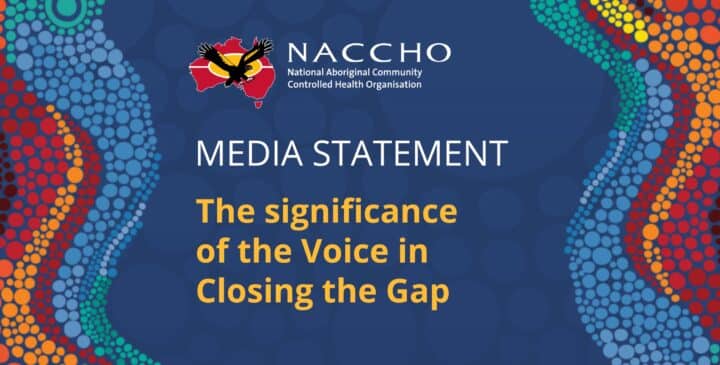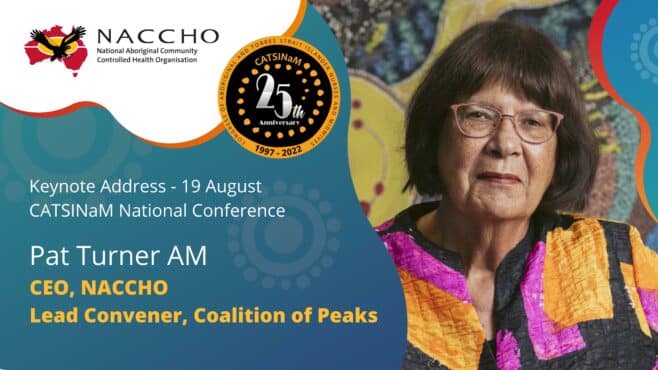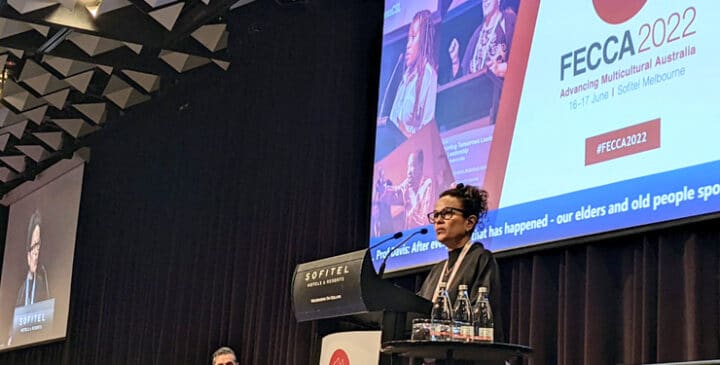

Closing the Gap in Aboriginal and Torres Strait Islander male health
NACCHO celebrates National Men’s Health Week (15 to 19 June 2020)
The National Aboriginal Community Controlled Health Organisation (NACCHO) has long recognised the importance of addressing Aboriginal and Torres Strait Islander male health as part of the Close the Gap initiatives.
On the occasion of National Men’s Health Week, NACCHO Chair Donnella Mills said, “The commitment of our Aboriginal Community Controlled Health Organisations (ACCHOs) is to support Aboriginal and Torres Strait Islander males to live longer, healthier lives by providing a wide range of preventative men’s programs that address critical social and emotional issues that our men face.
“The overall aim is reduce the rate of hospitalisations, which is almost three times higher than for other Australian men and to reduce the number of Aboriginal men in prison who are imprisoned at 11 times the rate of the general male population.”
“I would urge our Aboriginal and Torres Strait Islander men to focus on their overall health after these two-three months of isolation and get a comprehensive annual 715 health check at their nearest ACCHO. Annual health checks are crucial in picking up little things before they become worse, give peace of mind, and they are free.”
Ingkintja Male Health Service at Congress ACCHO in Alice Springs
Ingkintja: Wurra apa artwuka pmara is an Aboriginal Male Health Service at the Central Australian Aboriginal Congress that takes the lead in providing cultural activities and social and emotional wellbeing services for male health for many years. The ACCHO delivers a full suite of medical care complemented by social support services with emphasis on preventative health with annual 715 health check, servicing over 1,000 men every year.
The Ingkintja ‘Men’s Shed’ male-only washing facilities (showers and laundry facilities) and gym enable males, both young and old, to come together and access fitness, comradery and practical life skills. A psychologist and Aboriginal care management worker are available through Ingkintja,
allowing therapeutic care on counselling, violence interventions, cultural and social support to men.
Ingkintja also delivers the Jaila Wanti prison to work program, which provides support to Aboriginal prisoners 90 days prior to release and post-release to reintegrate back into community through the coordination of health, wellbeing and social support services. Male prison transitional care coordinators work with clients and facilitate linkages with employment and training providers. The team establish trust and respect and assist in reconnecting the men with family and culture, to reintegrate them into the community.
Through the program, Ingkintja deliver regular visits to Aboriginal prisoners in the Alice Springs Correctional facility, conducting sessions with Aboriginal prisoners on their holistic health and wellbeing including health promotions with a focus on staying off the smokes and alcohol.
Corrections staff have provided encouraging feedback on the positive impact that these visits have on the Aboriginal prisoners, noting changed attitudes and behaviours as the men reflect on the impact of their actions and ask for the next Ingkintja session.
Dr Mark Wenitong on what works in Aboriginal and Torres Strait Islander men’s health
The Aboriginal Community Controlled Health Organisation (ACCHO), Apunipima Cape York Health Council’s Public Health Medical Officer, Dr Mark Wenitong, has worked with Aboriginal and Torres Strait Islander men to improve their overall health and mental health. His expertise and experience have led to his involvement in health reform with the Cape York Aboriginal communities with a dedicated team of Aboriginal and Torres Strait Islander male workers, who are getting great traction with their community men.
“The strength-based men’s programs delivered by Apunipima continue to see rise in participation rates and better outcomes for Cape York men. Though we still have a long way to go, more of the men are taking control and utilising our programs to support improving their mental health and overall wellbeing,” said Dr Wenitong.
~ END ~

